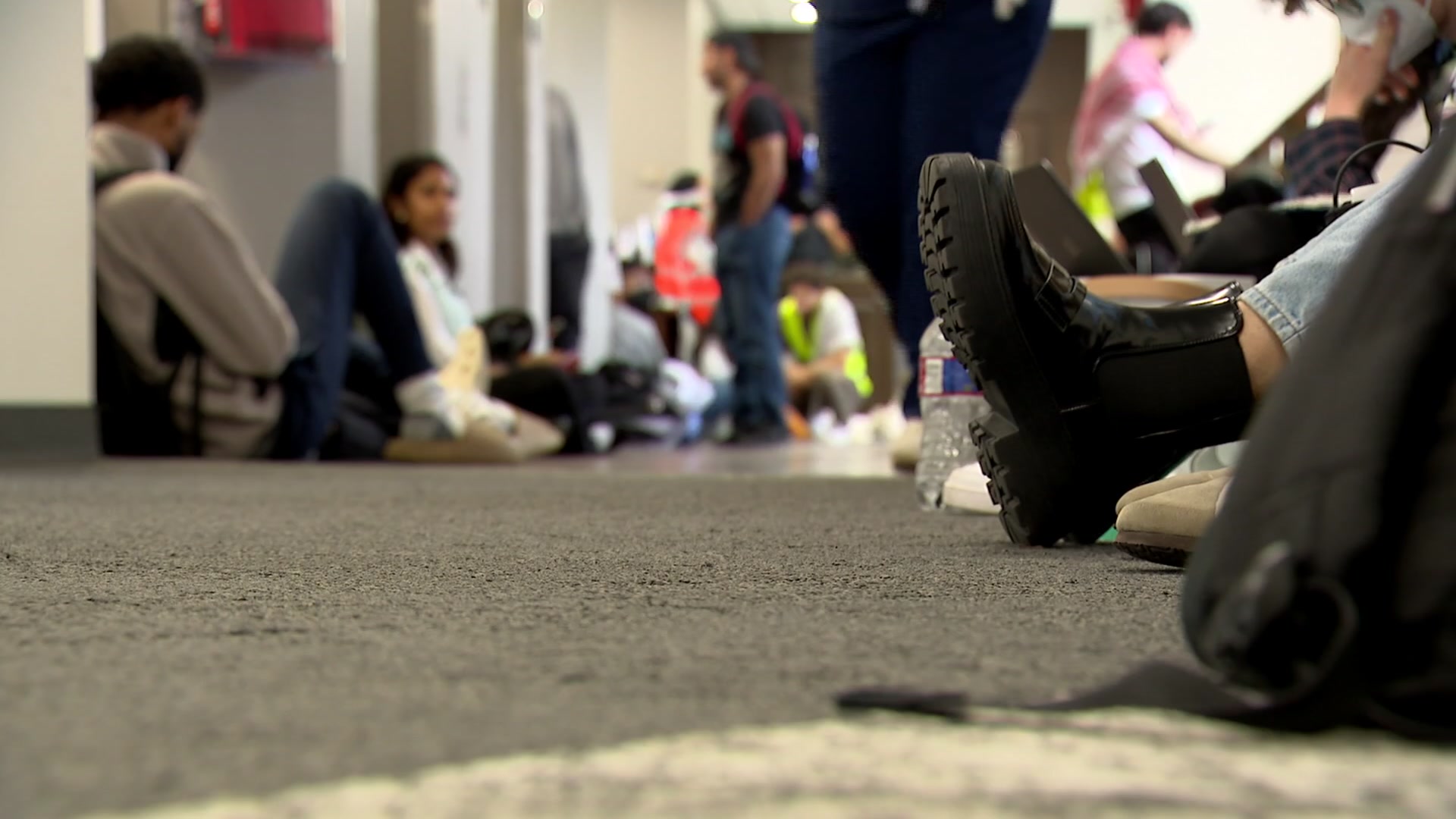Researchers at the Texas A&M University Health Science Center say standing desks in classrooms can slow or lower a child's body mass index (BMI).
The study showed the increase an elementary-aged child's BMI, a key indicator of obesity, could be slowed by an average of 5.24 percent.
"The standing desks just become a proxy for movement. What we are after, what we had hoped for, the whole goal of this was to get kids to move more," said Mark Benden, PhD, CPE, an associate professor in the Department of Environmental and Occupational Health at the Texas A&M School of Public Health and an author of the study.
In his study, university researchers outfitted twelve classrooms in three schools with desks that allowed students to stand or sit on a stool.
Researchers then used twelve other classrooms at the same schools using standard desks as a control.
The researchers then followed the 193 students during their entire third and fourth grade school years and charted the results.
"The researchers found that the students who had the stand-biased desks for both years averaged a three percent drop in BMI, while those in traditional desks showed the two percent increase typically associated with getting older," the university said in a news release. "However, even those who spent just one year in classrooms with stand-biased desks had lower mean BMIs than those students in traditional seated classrooms for their third and fourth grade years."
Local
The latest news from around North Texas.
The study noted there were not significant differences between genders or races.
At least ten schools in North Texas use standing desks in their classrooms.
The Episcopal School of Dallas installed two standing desks in each of the middle school classrooms last year and plan to get more.
"The students seem more focused in class and less antsy because they can stand up and don’t have to sit the whole time," said Mike Jenkins, Head of Middle School.
"We want healthy kids. Healthy kids are happy kids and they’re the ones who learn best," said Jenkins.
The research was published Tuesday in the American Journal of Public Health. Read more on the A&M study here.




